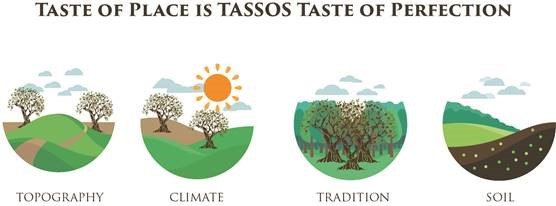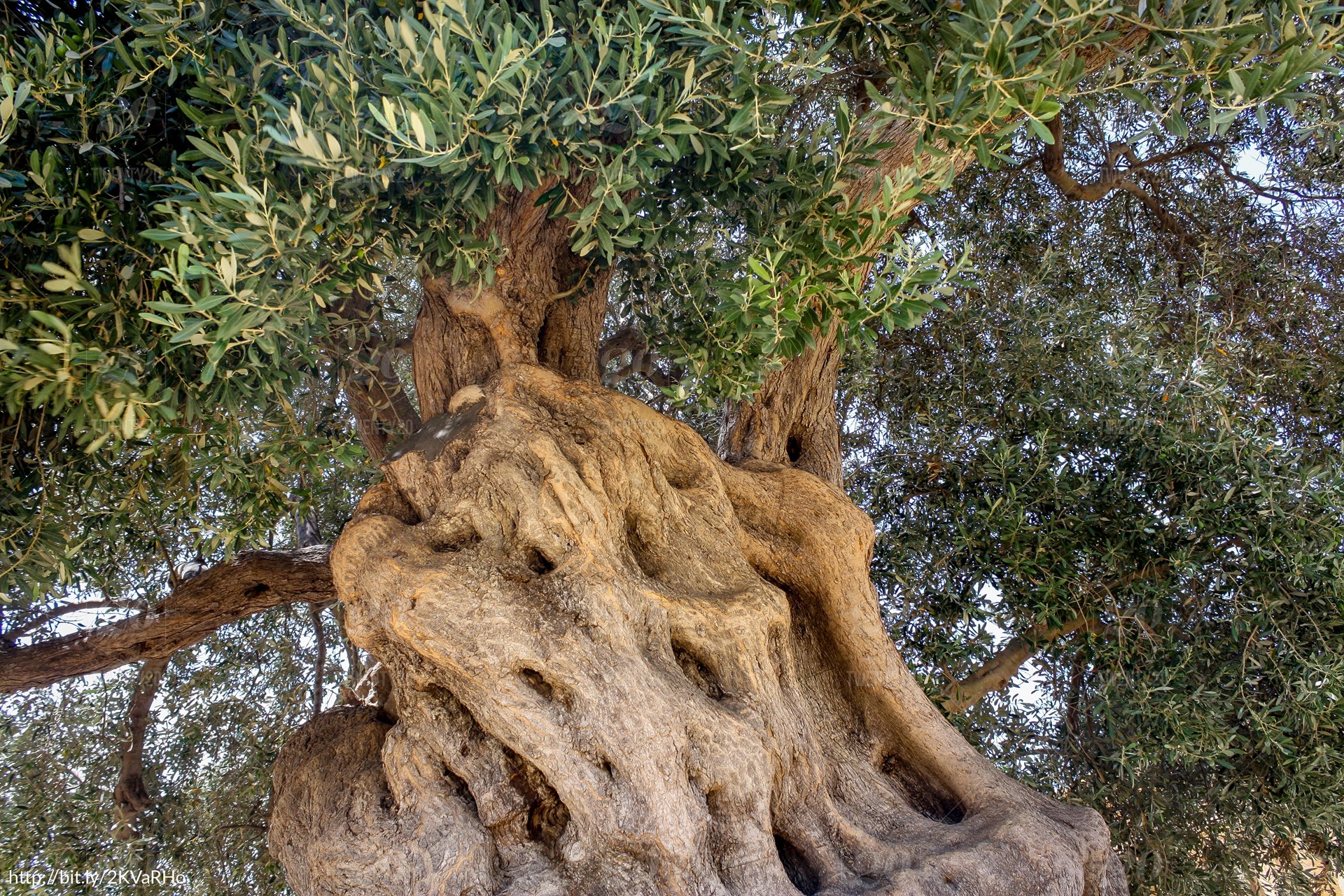WHERE AN OLIVE TREE GROWS MATTERS
On the island of Crete, Greece, the oldest olive tree in the world lives and still bears fruit. Estimated to be 4,000 years old, it is proclaimed a Natural Heritage Monument. There are many trees on this island with ages in the thousands of years. It is Crete’s exceptional ecosystem that supports this phenomenal longevity.
Crete is the cradle of olive cultivation for one reason---its terroir. The word terroir [ter-wahr; French ter-war] is a French word meaning earth or land specifically in relation to special environmental characteristics and conditions of the soil, climate, sunlight penetration, terrain, elevation and tradition that affects the taste and quality of food.

We are huge proponents of eating local, but some places simply have better terroir than others and Crete is the premier spot in the world for growing extraordinary olive trees which produce exceptional olive oil. It is only through a greater diversity of food that there is greater nutrient diversity. The Crete biosphere along with our chosen olive variety, Koroneiki, are why we can offer olive oils of exceptional taste, aroma, antioxidant and biophenol levels and healthy, unbroken fatty acid chains. All of Tassos® Extra Virgin Olive Oils are in the super food category.
The olive trees of Crete, per archaeological findings, have been cultivated for olive oil since 3500 BCE. These trees can survive droughts and alternating cool, hot and strong winds. They can grow well in soils up to an 8.5 pH and tolerate salt water conditions. These adaptable and hardy trees can continuously produce fruit in rocky and unproductive land for thousands of years.

And they do need to have this resilient nature as Crete is a chaparral biome. This environment is the prototypical wild west movie setting. This type of ecosystem is rare but is found on most continents and its two major characteristics are hot and dry. The winter temperature is very mild, usually about 50° F and summers are hot, often fraught with droughts and fires. The olive tree is ideal for Crete’s ‘wild west’ landscape as they are drought resistant and can withstand long periods without rainfall or irrigation.
In 600 BCE, the Athenian democracy passed the first written legislation in the world including an olive protection law prohibiting the cutting down of olive trees. The tree does not lend itself to simply cutting it down. The tree will regenerate and, in a few years, produces olives again. These phenomenal plant species are independent souls, growing and blooming, and bearing fruit despite extreme adversity.
We chose the Koroneiki olive trees of Crete for our olive oils for several reasons:
- For sustainability; this olive tree needs nurturing but little modern human attention and intervention. This ensures there is no impact on the greater biotic and abiotic environment from their cultivation while still providing the highest quality oils in the world.
- Crete’s terroir stresses the Koroneiki olive tree, forcing the plant to refocus its energy into producing small olives with an exceptionally high phenol concentration.
- We choose the Peza Region of Crete, Greece for the site of our Koroneiki olive groves. The Peza region rises to approximately 2,300 ft. (700m) above sea level.
- Our groves are on exposed sites in this mountainous region, where the wind and the free-draining calcareous soils serve to stress the trees, producing extra virgin olive oils with exceptionally high phenol and antioxidant concentrations.
- Research links altitude at which olives are grown to key health benefits, finding a positive relationship between altitude and levels of CoQ10 tocopherols and phenolic compounds.
- Our Koroneiki olive oils have a complex taste which is indicative of its high polyphenol and antioxidant content. These exceptionally healthy components influence our olive oils with fruity, herbaceous and green banana characteristics. The high concentration of antioxidants provides for a stable, longer shelf-life and give our oils a higher smoke point.
Join us in our next discussion on the specific biophenols and antioxidants of our Koroneiki olive oil and their applications as a functional food. We invite you to request a copy of our Let’s Get Cooking with Extra Virgin Olive Oil.
"A taste older than meat or wine, a taste as old as cold water. Only the sea itself seems as ancient a part of the region as the olive and its oil that like no other products of nature, have shaped civilizations from remotest antiquity to the present." Lawrence Durrell, Prospero’s Cell

By:
Barbara, BSN, RN, MSN, CRA at The Tassos Group